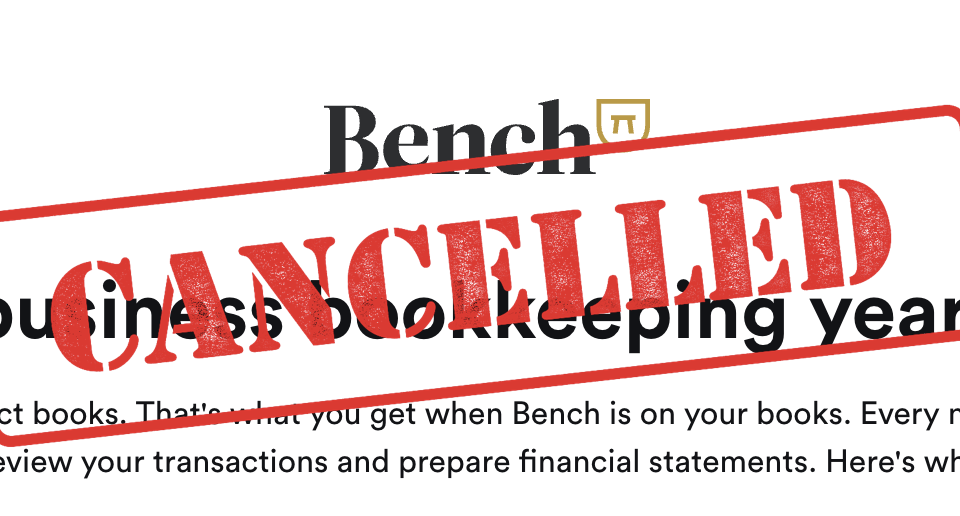Utah State Tax Commission Bill
October 8, 2012Tax pros endorse Backyard Bookkeeper
July 15, 2013Keep reading…
A common trap that business owners fall into when cash flow is tight is not paying their payroll taxes. Most bills we pay are directly linked to something we need on a regular business. For example, utility bills, for instance, or a subscription to online advertising. If we don’t pay it, we stop receiving the service or lose access to the product. It’s a little harder to see the connection when it comes to payroll taxes. Especially when it may take the IRS months or even years to notice that you haven’t paid.
The problem with that kind of thinking is that you aren’t paying for a service or product. You are paying for services on behalf of your employees. About half of what you owe in payroll taxes are known as “trust fund taxes”. Since, you took them out of your employees’ gross pay and held on to the funds so you could pay their income tax withholding, social security, and medicare. Then in addition, part of being an employer is contributing a certain amount in addition to what you took from the employee checks, and that also goes toward social security and medicare, in addition to smaller payments for unemployment insurance. This money is all federally or state-mandated to go towards employment benefits for your employees. Not paying it is just as bad as stealing money out of someone else’s wallet.
Here are some consequences to look out for when you don’t file or pay:
- Failure to file penalties: if you file returns late, you will be penalized a percentage of the balance of the return when you do file.
- Failure to pay penalties: once you have filed, if you haven’t paid yet, the IRS will levy another penalty for not paying within the time frame listed on the notices they send you.
- Tax lien: if you’re behind, the IRS will eventually file a tax lien, which means that in the IRS gets first dibs on your assets if you file bankruptcy. They do this as a matter of course, even if you get your act together and set up a payment plan, but be warned that you will start getting calls from random tax relief agencies that want to “help” you, for a fee, of course.
- Tax levy: if you are seriously behind and have major avoidance issues, the IRS will pick a random day of the week, take a look at your bank account, and relieve you of your entire available balance. This is one reason why avoiding the problem is an especially ineffective tactic when it comes to tax problems.
- Interest: charged on all unpaid balances and unpaid penalties.
- State issues: your state may do all of the above, in addition to what the IRS can do. However, because the state regulates LLCs and corporations, the state has a few more weapons in its arsenal. They can dissolve your LLC or corporation, deny you operating licenses, and in extreme cases, show up at your place of business and physically shut it down.
Now for our advice about getting out of trouble.
*Disclaimer: these are our personal opinions about how to deal with tax delinquencies in a reasonable way, and may not apply to all situations. Consult with your lawyer and accountant for advice.
- Confront your avoidance complex. If you are reading this, looking for advice on how to deal with your unpaid payroll taxes, then please read to the end of this post, and IMMEDIATELY do something productive to deal with it. Don’t schedule time to work on it; do it NOW. Even reading this post can be a way of avoiding the issue. It makes you feel like you are doing something useful. Even though, you haven’t done anything yet. Make a phone call to the state. Open a new bank account to put funds aside for a payment toward your unpaid balance. Complete one of the missing returns. Put it in an envelope to mail with a stamp on it. Just DO something, right now.
- Resolve state issues first. We recommend this for three reasons. First, your state has more power over the operation of your business than the IRS does. Meaning they have more power to hurt you if you don’t get caught up. Second, they are much easier to work with, because they are easier to contact, and usually the people on the other end of the line have more power to help you resolve problems than the average first live person you talk to at the IRS. Lastly, the balances involved are almost always much smaller. If you can just pay it and make it go away, you will be a million times better off.
- Now that I said my piece about the state, don’t put off the IRS either. If your total balance including penalties, is under $10,000, you can set up a payment plan over the phone. If it is more, you will probably have to go through an agent. In the meantime, just make payments when you can.
- Get a sound plan in place to start paying current taxes on time, if you aren’t already. Both the state and the feds will be nicer to you if you stay current. If you ever have to choose between making the current payment and the older one, pay the current liabilities.
Have you ever experienced trouble with payroll taxes? How did you deal with it? If you are reading this post looking for help, then what is your resolution to start getting the problem under control? We look forward to your comments.

